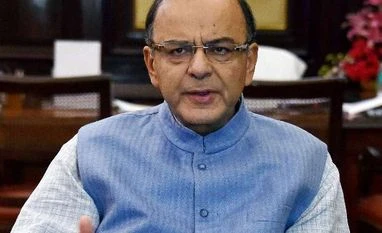Read more from our special coverage on "EPF"
Here are five questions that have risen on the EPF issue despite the clarifications.
1) The first three points of the 11 point explainer released by the government explains the rationale of the tax and how one can save tax if 60 per cent or more is invested in buying an annuity product. Confusion or rather a logical query on the rationale is; if investment in equities beyond a year is considered non-taxable, why is life-long saving of an employee who invests in a product with lower return taxable?
2) Post the online outrage over the tax, the government has said that it is willing to consider the proposal to tax only the interest income and not the contribution of the employee. Consider that an employee joins service from April 1, 2016 and has 35 years of service ahead of him. His salary is Rs 20,000 per month (which is at the lower end in the private sector) or Rs 2.40 lakh at the end of the first year. Even if EPF gives a return of 8 per cent, the compounded amount from the first year’s investment of Rs 24,000 only becomes Rs 3.55 lakhs by the end of 35 years. As the interest component of the final amount will be the major portion, the concession offered by the government does not seem like a good offer.
3) The government has said that exemption will be given to the entire corpus if 60 per cent is invested in annuity products. What is the basis of this 60 per cent? The only reason one can think of is the government does not want you to withdraw a major portion of your money without paying for it. The entire proposal of taxing EPF withdrawal is done for the benefit of the government and not the employees as the government would like us to believe.
More From This Section
4) The government has in their 11 point explanation said that the idea behind this mechanism is to encourage people to invest in pension products rather than withdraw and use the entire corpus after retirement. In an earlier point, the finance ministry had said that the scheme is applicable for rich employees. Surely a person who gets a higher salary knows how to use his money post retirement. Why does the government have to take this decision for him on how he should use his retirement money? Further, if such a tax with a floor salary is introduced future budgets will have the opportunity to start tinkering and bringing down the ceiling limits to tax more employees.
5) Finally taxing EPF is changing the rules of the game midway. Because of the liquidity crunch created by blocking his salary in EPF, the employee lives through credit crunch for most of his working career, borrowing money to meet his children’s education, marriage or even buying a modest house. He constantly looks at the amount being piled up in the EPF scheme as he lives on hope of better days ahead from this money on his retirement. Taxing him without giving him another option to save in any other instrument is messing with his long term planning.
Taxing lifelong savings either in EPF or NPS is a bad idea. Period.
)